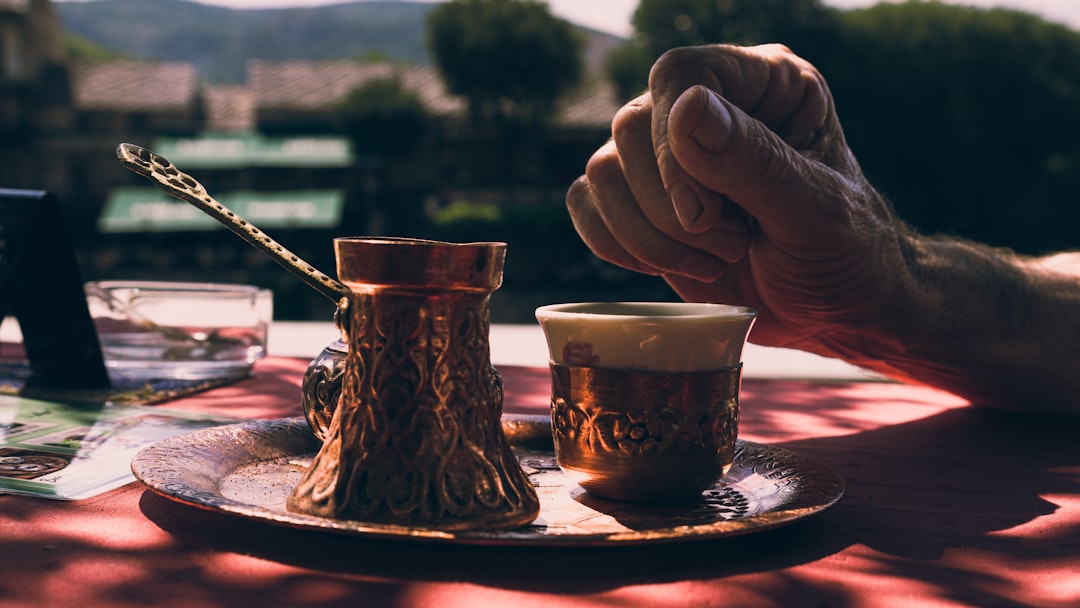For centuries, Turkish coffee has been more than just a drink; it’s a cultural cornerstone, a social occasion, and a reflection of the rich Ottoman legacy. This distinctive coffee style is revered for its deep flavors, unique brewing method, and social significance. Often enjoyed in a leisurely setting, Turkish coffee is traditionally served alongside sweet treats like Turkish delight or baklava, enhancing its already luxurious experience.
Turkish coffee is made using ultra-finely ground coffee beans, boiled in a special pot called a cezve or ibrik. This method results in a thick, frothy, and unfiltered coffee that’s both robust and aromatic. Unlike typical brewing methods, the grounds are not filtered out, leaving sediment at the cup’s bottom, which is used for fortune-telling, known as tasseography.
The coffee’s preparation is an art form, requiring skill to perfect the frothy head that defines a well-made cup. This froth, formed during the slow simmering process, adds to the coffee’s rich texture and is considered an essential quality criterion. Served in small cups, Turkish coffee leaves a lingering, complex taste on the palate, often described as a blend of earthy and nutty flavors with hints of chocolate and spice.
Turkish coffee plays a pivotal role in social interactions, acting as a catalyst for conversation and connection. It’s customary to share this drink during family gatherings, negotiations, and special occasions, such as weddings, where it plays a symbolic role in the engagement process. A prospective groom’s coffee etiquette might even be tested by his future in-laws.
Moreover, Turkish coffee houses, or kıraathaneler, have historically served as community hubs where people gather to socialize, discuss politics, and play games like backgammon. These venues, filled with the inviting aroma of freshly brewed coffee, have fostered a sense of community and dialogue through the ages.
The ritual of reading one’s fortune in coffee grounds, known as tasseography, is another captivating aspect of Turkish coffee culture. After enjoying a cup, individuals might flip their cups over onto a saucer, letting the grounds settle into interpretive shapes. These patterns are then ‘read’ by fortune-tellers, who weave stories and predictions about one’s future. This practice, while often seen as a light-hearted pastime, deepens the cultural experience associated with Turkish coffee.
To truly appreciate Turkish coffee is to engage in a tradition that transcends mere consumption. It’s about the slow brewing process, the anticipation of the first sip, and the shared moments it creates. In essence, Turkish coffee is a bridge between the past and the present, a cultural emblem that embodies the vibrancy of Turkish heritage.
In modern times, Turkish coffee continues to be a beloved daily ritual for many and a source of pride and cultural identity for Turkey. As it gains global popularity, Turkish coffee remains a testament to the enduring power of tradition and the universal joy of a perfect cup shared among friends.
Smart Life
Never Drink Alone: A Guide to Turkish Coffee
















Leave a Reply